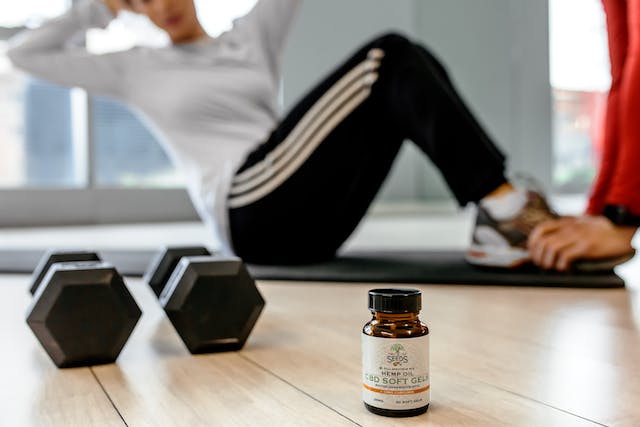Winter Wellbeing: Self-Care Strategies For Managing Seasonal Affective Disorder

Heal Your Circadian Rhythm
Sleep can be affected by the internal clock going out of sync during winter. Your body heals wounds during sleep, stores memories, and regulates metabolism.
SAD patients experience these benefits much less often, which can lead to low self-esteem, bad mood, and lack of energy. You can mitigate the effects by adding to your daily routine. Focus on improving your sleep hygiene and bringing more light into the room.
There are both short-term and long-term solutions to the fatigue and low light caused by SAD.
- Wake Therapy– This treatment treats SAD through sleep deprivation, and regulates bedtime schedules. Use this strategy only in medically controlled environments.
- Dawn Simulators– These light simulates the rising sun to help people feel more alert in the morning. This strategy can reduce depressive symptoms up to 42.2%, and improve alertness.
- Social Rhythm Therapy– This regulates routines and habits to level mood, by tracking social rhythm metrics. For example, when you get up from bed or engage in an activity that is regularly strenuous.
- Bright Light Therapy– This involves exposure to high levels of light in a 10,000 lux light box.
- Sleeping More Or Less_ People can develop hypersomnia during winter. Add or remove sleep according to symptoms.
- Avoiding Blue Light– Screens reduce melatonin, which is needed for healthy sleep. Try removing them an hour before going to bed.
5-20% of adult sufferers experience symptoms of winter blues and seasonal affective disorder in varying degrees. Consult with medical professionals to get additional advice on new treatments. Self-care is staying in touch with your medical team. Depending on your situation, they may prescribe sleep aids or vitamin D supplements.
Go Outside Anyway
Nature is said to be medicine. You can still step outside, even if the weather is gloomy or cold. Fresh air is good for both your mind and body. Walking is a low-impact activity that stimulates your heart, blood circulation and respiratory system. Hibernation can also cause symptoms that are relieved by going outside. Going outside, even with neighbors or strangers, can boost your morale.
Relax Your Way
Winter and holidays are rife in potentially toxic activities such as alcohol and excessive eating. It’s not necessary to indulge in these unsustainable, harmful activities, especially if they do more harm than good. If you don’t like it, you can ignore self-care tips online that tell people to meditate or take everything showers.
Instead of emulating the online influencers, rejuvenate yourself by doing things that are meaningful to you. You may feel refreshed by playing your favorite videogame or calling a grandmother. These activities would be considered pointless by others. Write down what you find joyful. When SAD symptoms hit, use this list to help you self-care.
Take Advantage Of The Fresh Start Effect
Everyone is excited about the new year. There is a constant optimism and motivation for you to make positive changes and start fun projects. The joy and opportunities that the new year offers can help to overcome the negative effects of SAD. There are many ways to benefit from the new year effect no matter what time of year it is.
- Set smart goals
- You can choose to tidy up one or more areas in your home
- Plan your goal and take one small step to achieve it
- Track your daily achievements
- Practice gratitude
- Recall times you’ve overcome challenges
- Look back at the wins of the past year
Wellness Techniques To Combat SAD
SAD can affect people differently. Others lose interest in hobbies and sleep problems, while others have difficulty sleeping. They long to feel the warmth of the sun again on their skin. There are ways to deal with these feelings and biological reactions.
If that doesn’t work, try another strategy. Try something else if that doesn’t help. It will take a lot of self-care techniques that you need to try and test every day. But, with the right tools and techniques in place, you can fight seasonal affective disorders and make your heart happier this winter.


MOST COMMENTED
FITNESS / Health
How To Build Muscle In A Healthy Way: A Comprehensive Guide
FITNESS / Health
5 REASONS WORKOUT CLASSES FOR AGE-INCLUSIVE PEOPLE ARE GAME-CHANGERS
Health / HOME
KEEPING YOUR CLINIC UP WITH THE TIMES
HOME / Wellbeing
TIPS FOR MOVING A TINY HOME
FITNESS / Health
HOW TO FIND AN ACTIVITY YOU LOVE TO HELP YOU STAY ACTIVE
FITNESS / Health
The 3 Best Reasons To Incorporate Cannabis Into Your Fitness Routine
HOME / Wellbeing
Winter Wellbeing: Self-Care Strategies For Managing Seasonal Affective Disorder
HOME / Wellbeing
DON’T FORGET THESE ESSENTIALS THE NEXT TIME YOU HEAD OUT OF TOWN
Health / HOME / Wellbeing
UK FOREST HOLIDAYS: YOUR GUIDE TO EMBRACE NATURES PLAYGROUND
FITNESS / Health
Fitness Coaches: 3 Top Tips To Stay Motivated